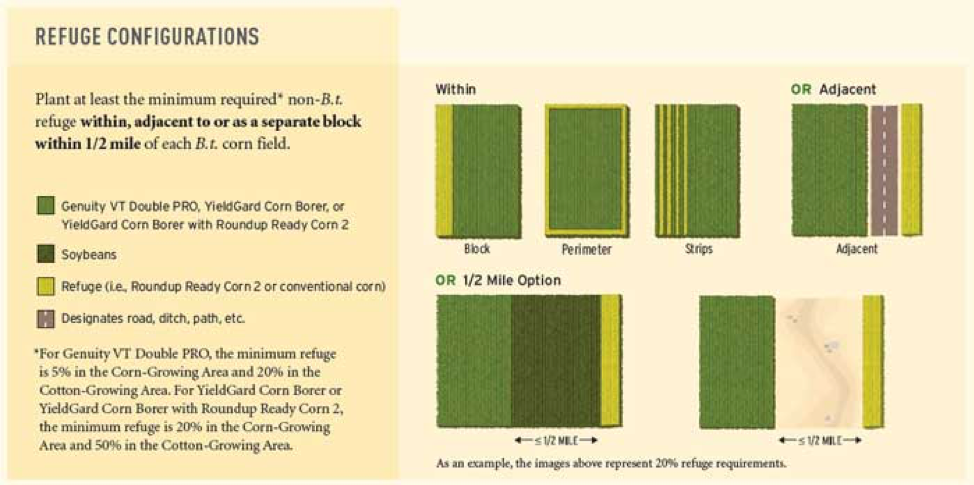Remember Your Refuge When Planting Bt Corn
go.ncsu.edu/readext?590692
en Español / em Português
El inglés es el idioma de control de esta página. En la medida en que haya algún conflicto entre la traducción al inglés y la traducción, el inglés prevalece.
Al hacer clic en el enlace de traducción se activa un servicio de traducción gratuito para convertir la página al español. Al igual que con cualquier traducción por Internet, la conversión no es sensible al contexto y puede que no traduzca el texto en su significado original. NC State Extension no garantiza la exactitud del texto traducido. Por favor, tenga en cuenta que algunas aplicaciones y/o servicios pueden no funcionar como se espera cuando se traducen.
Português
Inglês é o idioma de controle desta página. Na medida que haja algum conflito entre o texto original em Inglês e a tradução, o Inglês prevalece.
Ao clicar no link de tradução, um serviço gratuito de tradução será ativado para converter a página para o Português. Como em qualquer tradução pela internet, a conversão não é sensivel ao contexto e pode não ocorrer a tradução para o significado orginal. O serviço de Extensão da Carolina do Norte (NC State Extension) não garante a exatidão do texto traduzido. Por favor, observe que algumas funções ou serviços podem não funcionar como esperado após a tradução.
English
English is the controlling language of this page. To the extent there is any conflict between the English text and the translation, English controls.
Clicking on the translation link activates a free translation service to convert the page to Spanish. As with any Internet translation, the conversion is not context-sensitive and may not translate the text to its original meaning. NC State Extension does not guarantee the accuracy of the translated text. Please note that some applications and/or services may not function as expected when translated.
Collapse ▲Remember to plant at least 20% of your corn acres to refuge hybrids (non-Bt varieties). The purpose of the refuge area is to prevent pests from developing resistance to the technology.
Requirements vary based on the exact Bt gene used, this generalizes the requirements to make sure you meet the requirements. All Bt corn products require implementation of an insect resistance management (IRM) program according to the refuge size, guidelines on planting requirements and insecticide usage are described below.
Refuge Planting Requirements:
- At least 20% of your corn acres to non-Bt corn. When a single Bt gene is used, 50% of your corn must be a non-Bt refuge
- Must be within a 1/2 mile of refuge hybrids
- Must be planted in the same field or adjacent to refuge hybrids. This can be done in blocks or strips (as long as strips are at least 4 rows wide within Bt corn field)
- Appropriate refuge must be planted on every Bt corn farm
Refuge Insecticide Requirements:
- Must be at economic thresholds in order to spray conventional pesticides
- Bt-based sprayable insecticides cannot be used on the refuge corn
Remember, the reason for the refuge is to keep a non-resistant population.
Reasons it’s Important:
- Without a refuge the resistant populations will thrive and reproduce, leading to complete resistance.
- You need to keep non-resistant populations in your field to avoid population selection of resistant genes.
- Its a requirement, and you will be held responsible by the seed companies.
Links to Additional Information:






